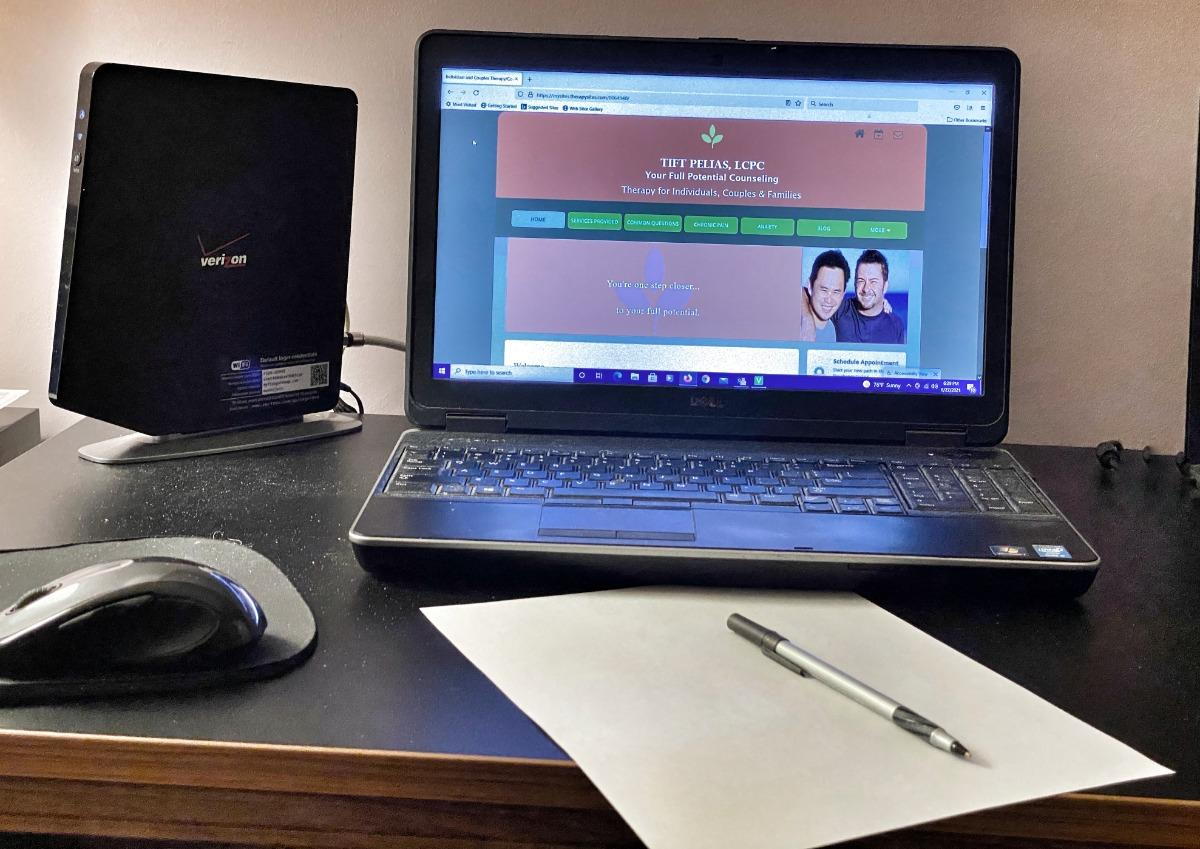
•Popularity is growing with patients and therapists for distance counseling sessions (teletherapy) delivered via secure HIPAA -compliant technology.
•Teletherapy offers many benefits.
•In some ways, teletherapy can be more effective than in-person sessions.
In recent years, there has been an embrace by therapists and patients of using HIPAA-compliant videoconference technology (now usually called teletherapy) for counseling sessions. Covid saw a switch by most providers to 100% teletherapy sessions. Post Covid, therapists and clients will likely continue to use teletherapy on a regular basis.
Teletherapy has many benefits for clients. One benefit is more flexibility. It gives clients more time. The commitment time is now just the length of the appointment. There is no need to allow for traffic, finding a parking place, or sitting in the waiting room. Clients can schedule appointments from home before work or in their office during lunch.
The regularity of sessions is an important therapeutic aspect of counseling. Teletherapy allows for much higher attendance rates. Weather, child care or some other unanticipated schedule challenge is not likely to cancel a session. A client might not feel well enough to leave the house and drive to an appointment, but well enough to have a session from home.
Distance sessions allow for more choice from clients. If you find a therapist in your state that seems to be a good fit but is an hour travel time away from you, distance sessions can still allow you to work together. If you rely on public transportation, you no longer need to choose the best therapist on your bus route or close to a subway stop.
Teletherapy can also improve the quality of counseling. Having a session at home or in your office can make you feel more comfortable. More of the session time is spent talking about client issues. In person, traffic could delay the session start time or result in the client having to switch topics from being late to issues they want to discuss. Adding another person to a session can be easier in a distance session. Also there is a therapeutic benefit to having a session in the same place where the issues which bring them to counseling exist rather than in a counselor’s office.
While in person sessions are important and valuable, teletherapy offers many benefits. Both patients and therapists seem to favor at least some mix of teletherapy and in-person sessions in the future.

